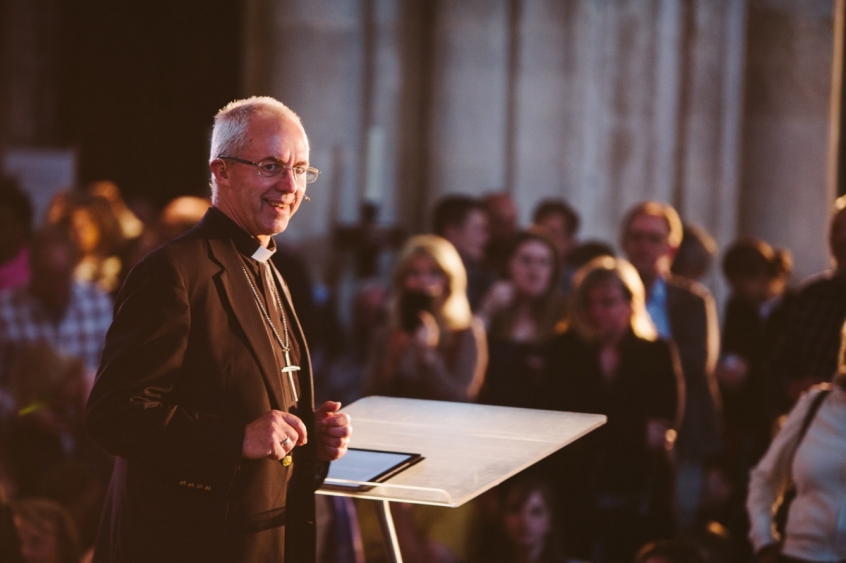
Sometimes it feels as though I am a small child living in a household where the parents are constantly arguing and undermining each other.
Except, of course, that I'm not an infant – I'm a middle-aged man with slightly too much of a stomach but still (though I say it myself) a mighty fine head of hair. And I'm not living at home with my parents, either.
However, I am a church minister trying to exercise some form of pastoring and teaching among three congregations in the Church of England at a time when some of its leaders – some of our Bishops – seem to spend much of the time undermining each other and long-established church teaching.
So when I ask our Bishops, 'Please stop traumatising your clergy,' I don't think this is hyperbole. I mean, quite sincerely, that I find what is going on, to put it mildly, 'a deeply distressing or disturbing experience' – which is what the definition of trauma is. And it needs to stop.
It's like walking on egg-shells. You wonder what on earth the next thing will be, coming out of the blue, that brings confusion and disruption into everyday parish ministry. Take these past two weeks. On one day we have a superb restatement of the 2,000-year old orthodox Christian view on sex and marriage. Lots of hostility in the secular world, of course – but no surprise there. That's par for the course and always has been (as 1 Peter 4v4 makes clear).
But then we had a significant number of Bishops coming out and criticising their own statement with a kind of passive-aggressive, pseudo-spiritual language that is actually very disingenuous. Oh yes, they don't overtly reject the statement per se – it's just the way it came out, the timing of it, the wording that was used – as though introducing a few swirly flower motifs in the margins, changing the font from 'Times New Roman' to 'Comic Sans', and sending the whole thing out in a gift-wrapped presentation box with a free Parker pen was all that was required to satisfy them.
But this doesn't fool anyone, does it? We all know that what many, probably most, of these objecting Bishops really mean is, 'We don't support that statement.' In other words, they disagree with their own church's teaching (not to mention that of most other denominations also). And thus the scene was set for a reportedly somewhat 'lively' meeting of the College of Bishops last week.
Out of that came a second statement – about the first statement – in which the Archbishops of Canterbury and York apologised for any 'hurt caused'. The words used were of such wonderfully ambiguous Anglican-speak that the Church of England media office apparently had to spend most of its time and energy making it clear to media outlets that, no, they were not retracting their original statement, and, no, nothing had changed. Except whatever it was that had. Or hadn't. Or something.
I scarcely need to spell out what this does for the morale of many clergy on the ground. And heaven help our watching parishioners. So what are we to do? The New Testament would seem to recommend expelling those who contradict established church teaching on moral issues (1 Corinthians 5). But this somehow seems to have been supplanted in recent years by Justin Welby's assertion that 'we don't chuck out those we disagree with'. It's a lovely sentiment, redolent of the touchy-feely era in which we live. But I can't really relate this to apostolic teaching on church discipline at all. Either way, we are where we are, such as it is.
Of course, there is the upcoming 'Living in Love and Faith' report. I would love to be surprised, but I fear it may simply prolong the agony for all concerned. However, perhaps there is another way. Naturally as Anglicans, we are against divorce generally. But occasionally – as all Christians recognise – we have to accept that some marriages do breakdown irretrievably. Some households do fall apart. And likewise, we can all see quite obviously that the House of Bishops contains wholly irreconcilable views.
When America's United Methodist Church recently recognised a similar division in its leadership, it took a grown-up decision to initiate an organised separation between liberals and conservatives, recognising that this was a better option than a forced and fake unity which fooled no-one.
So who among our Bishops and other leaders here will have the courage to face the truth and initiate a mutual, planned and organised parting of company in some way, shape or form? Are there some who together can take a lead and act?
For the sake of the wider family of faith – including the mental health of all the clergy and the clarity of our congregations – not to mention the glory of God, this current situation simply cannot, and must not, continue.
David Baker is a former daily newspaper journalist now working as an Anglican minister @Baker_David_A













